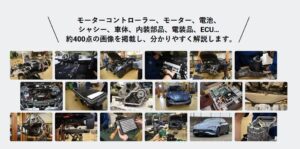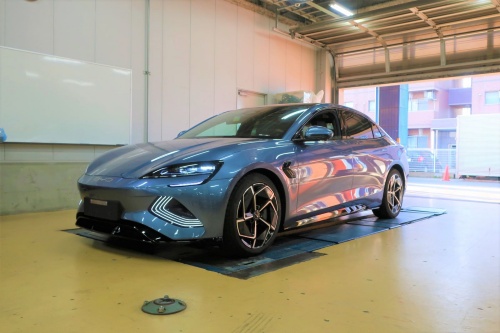Japan has again stripped down electric cars made in China because they are curious about how cheap they can be. First, a professor from Nagoya University, Masayoshi Yamamoto, was determined to buy a cheap electric car from China, the Wuling Hongguang Mini EV.
Instead of being used, all the components of China’s tiny electric car were stripped down. Masayoshi Yamamato was curious why Wuling was able to sell this electric car at a price of 28,800 Yuan or the equivalent of Rp. 65.6 million.
Now it is the turn of the Japanese mass media to try to do the same thing. Nikkei BP bought an electric car made by BYD, namely the BYD Seal.
Currently BYD Seal is included in the category of cheap electric cars. Currently, the electric car is sold at 189,800 Yuan or Rp. 397.09 million.
It’s cheap because BYD Seal’s competitors, such as the Tesla Model 3 and Hyundai Ioniq 6, have a more expensive price tag. The Tesla Model 3 is currently selling for USD 40,240 or around Rp. 602 million. Likewise with the Hyundai Ioniq 6, which costs USD 42,715 or around IDR 639.4 million.
From there, Nikkei BP was curious why the BYD Seal price was so much more affordable than its competitors. No kidding, the price difference can reach more than IDR 100 million.
They even documented the entire process of removing all BYD Seal components in a 350 page book. On each page, Nikkei BP writes various information regarding the status of the components and their intended use.

In the same information they also do a price comparison with the same components sold in Japan. Nikkei BP also tests and compares the car chassis and battery technology used.
Interestingly quoted by Autopro, Nikkei BP actually believes that BYD actually has very high technology compared to Tesla.
“We believe that BYD has surpassed Tesla to become the number one electric vehicle manufacturer in the world. BYD even has the foresight to lead the world standard in design,” said Nikkei BP.
Autopro further said that stripping down car components is actually nothing new in the automotive world. This effort is actually often carried out by several car manufacturers to find out the advantages and disadvantages of competitors’ cars.
It’s just that things are rarely done openly like what was done by Nikkei BP and Professor Masayoshi Yamamoto from Nagoya University.




